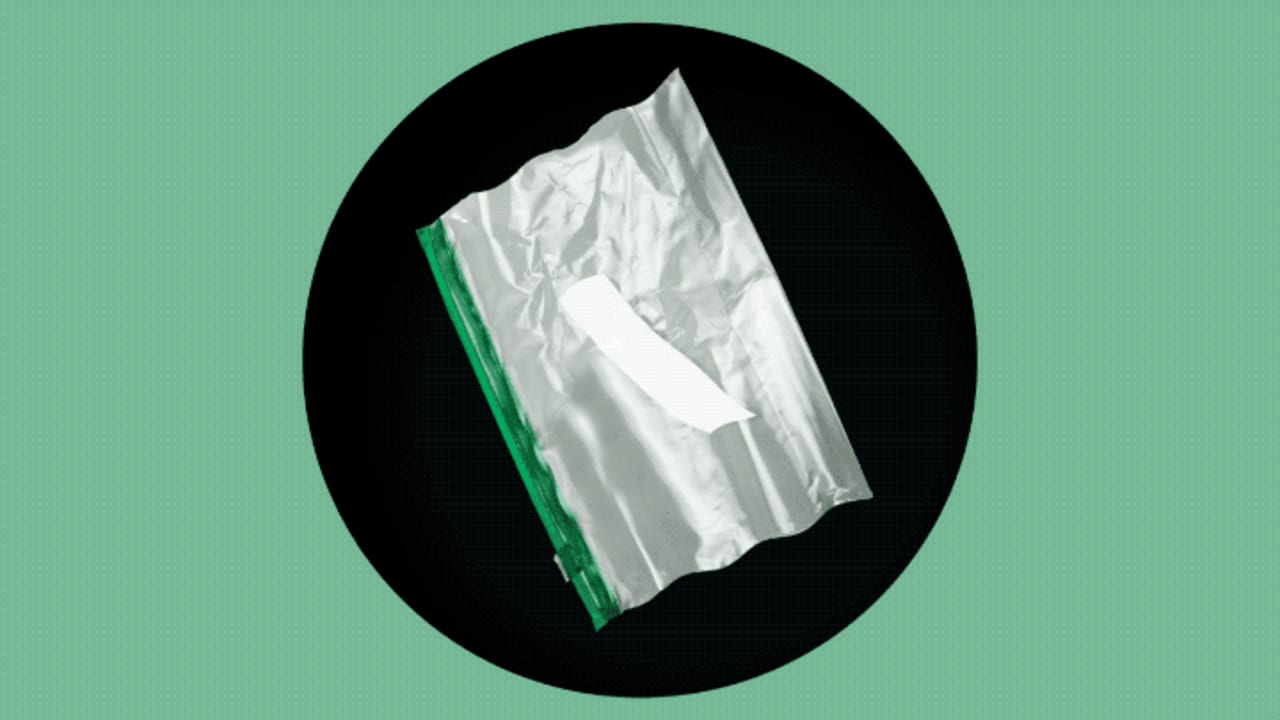My search for compostable Ziplocs shows the huge branding problem for sustainable products - 4 minutes read
 Why is finding compostable Ziplocs so difficult?
Why is finding compostable Ziplocs so difficult?Fisk Johnson, CEO of the SC Johnson company, has been using his Twitter feed to shed light on the problem of global plastic pollution, and the results have had me glued to my screen even more than usual. Gorgeous and disturbing videos show him swimming through plastic sludge in the Pacific. In response, his company has created a “plastic bank” that provides new incentives for recycling in Bali and launched a new Windex bottle made entirely from ocean plastic.
I’ve been a dedicated washer and reuser of plastic sandwich bags ever since learning of the swirling Great Pacific Garbage Patch, now double the size of Texas. With China no longer taking our plastic waste, I’m trying to break the plastic habit altogether. I ordered a slew of net bags to bring to the grocery store; I buy prepared food in mason jars; I even bought some waxy cloth stuff (it smells kind of odd) to cover my half-eaten avocados. Meanwhile I obsess guiltily over stories of Zero Wasters who end the year with a wad of dental floss and a tampon tube as their only contribution to the landfill.
But all this individual effort feels puny compared to the size of our environmental problems. Big companies can do what niche producers can’t. Take Walmart’s Project Gigaton, launched in 2017, which enjoins suppliers to reduce greenhouse emissions by one gigaton—the equivalent of taking more than 211 million passenger vehicles off U.S. roads for an entire year.
Which is why I was thrilled to read that Fisk Johnson’s company was making compostable Ziploc bags. I could keep buying a product I like, and the purchase would be more meaningful than retweeting a video of Fisk in a scuba suit. Rewarding companies that are driving change at scale is a win for us all.
So I tried to purchase some. And kept trying. I spent at least 45 minutes searching the company’s Twitter feed and YouTube and LinkedIn channels for a link to buy compostable Ziplocs. Nada. More surprising, I searched for “compostable Ziploc” on the SC Johnson site and got zero results. A press release from 2013 affirmed the existence of the bags, so I knew I wasn’t crazy. A Google search took me back to the company site, where I finally found a picture of the elusive bag. But there was no “buy” button.
It struck me as a branding problem nearly as big as the Great Pacific Garbage Patch: Why would Fisk Johnson and his team of marketers spend all that time and effort promoting the company’s environmental activism, and then not connect the dots to make it easy for consumers to join in? Don’t get me wrong: I’m often grateful for an inspirational message that’s not a sales pitch. But marketers talk about “customer journeys” for a reason. People move from feeling inspired, to seeking more information, to doing something.
I took my frustrations to Kelly Semrau, SC Johnson’s senior vice president for global corporate affairs, communication and sustainability, and she was all sympathy. The company had tried selling compostable Ziplocs and other products via its own fulfillment center with lousy results, she explained. Like all mass marketers, they’re dependent on big-box stores, which demand high-volume sales. (And did you know that compostable bags expire? I didn’t.) “Fisk is an amazing person who is trying to be ahead and build an appetite for [sustainable products],” Semrau says. “We are out there constantly trying to drive shopper interest and behavior changes, because that’s who we are, and that’s who Fisk is.”
Source: Fastcompany.com
Powered by NewsAPI.org
Keywords:
Biodegradation • Herbert Fisk Johnson III • Chief executive officer • S. C. Johnson & Son • Twitter • Plastic pollution • Bali • Windex • Plastic • Plastic • Sandwich • Plastic bag • Great Pacific garbage patch • Texas • China • Plastic pollution • Plastic bag • Food • Textile • Dental floss • Tampon • Landfill • Environmental issue • Ecological niche • Walmart • Tonne • Greenhouse gas • Tonne • Herbert Fisk Johnson III • Biodegradation • Ziploc • Product (business) • Twitter • YouTube • LinkedIn • Biodegradation • Biodegradation • Ziploc • S. C. Johnson & Son • Google Search • Great Pacific garbage patch • Environmentalism • Rubicon (TV series) • Information • S. C. Johnson & Son • Globalization • Corporation • Communication • Sustainability • Company • Biodegradation • Product (business) • Marketing • Big-box store • Biodegradation •